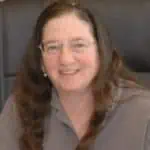Join today and support organic food & farms!
Organic Farmers Association members support a strong voice for organic farmers in Washington, D.C.
The Organic Farmers Association is the ONLY national organization where solely independent certified organic farms determine its policies and work agenda. OFA was founded on the belief that the voice of farmers like you should carry the most weight in agricultural policy decisions.
In recent years, OFA has made a difference by putting significant pressure on the USDA to finalize the Origin of Livestock Rule to help organic dairies and finalize the Strengthening Organic Enforcement Rule to stop organic fraud and increase enforcement. We testified and advocated to allow paper pots for small-scale vegetable growers, introduced the ODAIRY Act of 2023, and advocated for stronger animal welfare standards for organic livestock and poultry production (OLPS Rule).
We have proved that farmer voices are stronger when we work together. Join us in this movement by becoming a member today!
Farm
Membership
U.S. certified organic farmers should select this membership. Only farm members are eligible to vote on Organic Farmers Association policy positions and priorities. International farmers, or farms that are not certified organic, should select the Supporter Membership.
Supporter Membership
Not a certified organic farmer, but want to support the organic farmers that make our planet and food systems a better place? Supporter members will be connected to the discussions about policies that affect organic farmers, and be called to advocate on their behalf.
Organization Membership
Organizations that have a significant membership (or stakeholders) of certified organic farmers should select this membership. Organization Members receive the tools they need to advocate for policies important to organic farmers and extend their network.

